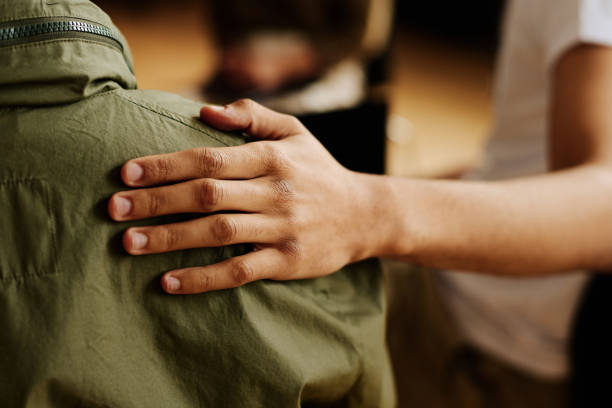8 Great Tips For Dealing With Depression In College
College is one of the most stressful times in a person's life, mainly because of all the challenges you're going to face. You may no longer be living at home, and have to deal with so many new things, from financial troubles to problems fitting in with your classmates. All these issues can make you feel isolated, which then leads to depression. If you're suffering from depression, or know someone who is, there are some ways you can help them out of their funk. Here are eight tips for coping with depression that could make a big difference.
1.Engage in Psychotherapy
Psychotherapy allows you to explore your thoughts and feelings, which are often difficult to understand without the help of a professional. This can be especially true for students who have never experienced depression before.
When you're depressed, it's hard to understand how you feel or why you're experiencing certain emotions. Psychotherapy helps you gain insight into your thoughts and feelings by providing an objective perspective on them.
Psychotherapy also offers a safe environment for you to explore your issues without feeling judged or criticized by others. This can be especially helpful if you're concerned about burdening friends or family members with this information, since they may not fully understand what it's like to experience depression firsthand.
Finally, psychotherapy can provide support through difficult times so that you have someone who cares about your well-being even when things seem bleakest.
2. Practice mindfulness
As a college student, it can be difficult to find time for yourself. Between studying, working, and the social life that comes with being in school, it can be hard to carve out time to relax. But practicing mindfulness can help you deal with these things, especially, depression..
Mindfulness is about being present in the moment. It's about focusing on what's going on around you and not letting your mind wander off to other things—you know, like how much homework you have due to your studies, or how much money you need to earn this week so that you can afford food.
When you practice mindfulness, it helps keep your mind focused on what's happening right now. You're less likely to feel overwhelmed by all of the stressors in your life because they're no longer taking up all of your attention. Instead, they're just part of what's going on around you at any given moment. That makes dealing with them easier!
3. Spend time in nature
There are several reasons why spending time in nature can be so beneficial for people dealing with depression. First, it boosts your mood. Spending time outside offers you the opportunity to enjoy being surrounded by greenery and natural beauty—and it's easy to feel happier when you're around these things!
Second, it helps you focus on the present moment. When we're depressed, our minds tend to wander into negative thoughts or memories of past failures. Spending time outdoors helps us refocus on what's happening right now—and that can be very calming and grounding.
Finally, being outside offers us an escape from our daily routines which can sometimes feel overwhelming when we're dealing with depression. By getting away from the stresses of everyday life, we're able to return home refreshed and ready to take on whatever challenges await us there! That’s why, if you are a college student dealing with depression, try walking outside even just for a minute and you’ll be surprised how it can change you.
4. Exercise
It's easy to feel like your body is failing you—especially when you're dealing with depression—and that can lead to a vicious cycle of self-loathing and isolation. But exercise can help break the cycle by giving you a sense of control over your body and its reaction to stress, which will make it easier for you to feel at peace with yourself and more confident in who you are.
Exercise also helps regulate moods, so if everything around you seems like it's falling apart and there's nothing you can do to stop it, try going for a run or hitting the gym instead of drowning yourself in alcohol or other substances that might only make things worse.
As far as what kind of exercise works best? It doesn't matter! Any activity that gets your heart rate up is good: running on the treadmill, lifting weights at the gym, playing soccer outside. Just get moving!
5. Strengthen your social connections
It's easy to feel isolated and alone when you're surrounded by thousands of people, but it's important to remember that you don't have to go through this alone!
Connecting with other students can help you combat feelings of depression by giving you a sense of community and making you feel like you're not alone. This can be as simple as joining a club or getting involved in a sports team—it doesn't even have to be something that's related to what you're studying! The important thing is that it gives you an opportunity to meet people who are passionate about something else and have similar interests as yours.
In addition to connecting with other students at your school, it's also important to connect with friends and family members back home. While they may not be able to attend every event at your college, they can still provide support through phone calls, texts, emails, or even video chats if they live far away from where you are currently living!
6. Improve your nutrition
Nutrition can be an important component of your overall wellness. The foods you eat have a direct impact on how you feel and function, so it is important that you choose foods that provide you with the nutrients your body needs to thrive.
Aside from that, nutrition affects your mood, energy levels, concentration and focus, sleep quality, stamina, and more. Eating nutritious meals can also help improve your mood and energy levels by providing the nutrients necessary for healthy neurotransmitter production in the brain. A diet rich in fruits and vegetables will help provide vitamins and minerals needed for healthy brain function.
Eating a balanced diet will also help regulate your blood sugar levels so that you don't experience spikes or crashes that can lead to fatigue or irritability. A balanced diet includes lean proteins such as fish or chicken breast along with whole grains like brown rice or quinoa at each meal along with plenty of fresh fruit and vegetables throughout the day (at least 5 servings per day). That’s why this is important to be considered most especially if you are not fine mentaly.
7. Improve your sleep habits
Sleep is one of the best ways to improve your mood, but it can be hard to get enough sleep when you're in college. Between classes, homework, and extracurriculars, you might not have time for a full eight hours of shut-eye.
But don't worry! There are some things you can do to make sure that you get enough sleep and feel great even if your schedule gets hectic.
First, try setting an alarm for when it's time to wake up. This can help your body naturally wake up at the right time in the morning, which makes it easier to get up and start your day feeling energized and refreshed.
Second, try going to bed at the same time every night so that your body starts getting used to falling asleep at certain times. This will help you fall asleep faster and make waking up easier too!
Thirdly (and this is really important), keep electronics out of the bedroom! Electronics give off light which can interfere with your body's natural circadian rhythm (the internal clock which regulates sleep). So turn off all screens before bedtime—and then go back to those tips above! It is important for you to follow these if you really want to improve yourself.
8. Avoid drug and alcohol abuse
Drugs and alcohol can make you feel better in the short term, but they also make it harder to deal with depression in the long-term. If you're feeling depressed, drugs and alcohol will only make things worse by making it harder for you to focus on your schoolwork or take care of yourself. Allowing yourself to get high or drunk may seem like a good idea at the time, but it'll just make your problems worse when you sober up.
It's important to remember that avoiding drugs and alcohol can ease your depression because it helps keep you safe from other negative consequences as well. Aside from this fact, if you abuse drugs or alcohol while attending college, there's a higher chance that you'll get into legal trouble for possession, driving under the influence (DUI), or public intoxication. These consequences could have serious implications on your academic career and could even result in suspension from school or expulsion from the university altogether!
Depression can be a major problem for college students, sometimes overwhelming even the most ambitious and hardworking of students. But with a great support network, proper care, and patience you too can overcome this serious issue. Just remember, though your situation may seem hopeless, there is likely a way out and you are never in this battle alone. Because no matter how tough it seems, the very best is yet to come!
For more helpful and informative insights, visit here.





